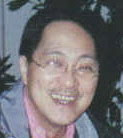GOTCHA, Published in The Philippine Star, Monday, December 31, 2007
Are we a race of suckers, or just plain happy-go-lucky? Sen. Aquilino Pimentel Jr. asks so in the wake of Honda’s announcement to make cars that run on water using the invention of Filipino Daniel Dingle. That it took a Japanese conglomerate to recognize Dingle’s genius reflects the sad state of Philippine science and engineering. Lamenting government’s failure to aid scientists, Pimentel blames bureaucrats for Dingle’s shabby treatment. The senator recalls meeting the inventor when he was Minister of Interior in 1986. No less than President Cory Aquino road-tested the water car, with instructions for the Ministry of Science and Technology to help mass-produce it. It took months for the agency to move, and when it did a minor official dismissed Dingle’s contraption as puny. Two decades later, with the world reeling from $100-per-barrel oil, Pimentel can only shake his head at the country’s missing the boat. How many billions of dollars could we have saved using water on cars instead of importing fossil fuels, Pimentel rues?
Rep. Baham Mitra, head of the House committee on agriculture, tells how inability to adopt basic science and engineering has cost the country. The
Why Filipinos do not have a scientific or engineering culture can be traced to many factors. But government mostly is to blame. There are very few legislators with grounding on technology, so Congress as policy setter overlooks its importance. By contrast, many of
Pimentel tells of another inventor, Isidro Umali Ursua, who has found a way to harness ocean currents to produce electricity. Like Dingle, Ursua had sought Pimentel’s endorsement in 2003 to the DOST. Then-Trade Sec. Mar Roxas too put in a good word. But again the agency dragged its feet instead of swiftly aiding the innovator of an energy saver. In the end, a bureaucrat rejected Ursua’s plea for help because the latter allegedly didn’t comply with some procedures. Pimentel suspects the oil lobby quietly had moved against the savant. Grown suspicious of government, Ursua applied for a patent not with the local Intellectual Property Office but with the World Intellectual Property Organization in
* * *
Under the law a local chief executive has the power to pick his chief of police. The National Police Commission must submit a short list of three nominees, from which the governor or mayor selects. If the latter deems none in the list acceptable, he may demand a new one. To facilitate things, the Philippine National Police may ask the official for his choice, and then have the Napolcom include the officer in the short list.
If it’s that easy, why is Pampanga Gov. Ed Panlilio having a hard time getting his preferred provincial police director?
Panlilio, a priest who aims to wipe out jueteng, has long chosen Sr. Supt. Cesar Hawthorne Binag. There’s good reason for it. A preacher who founded the Christian Officers Reform the Police Service, Binag is a staunch battler of vice. Panlilio needs a partner in his fight against illegal numbers games that not only corrupt cops but also worsen hunger and abet narco-trade.
Fr. Melo Diola, who helps Panlilio wade through sticky politics, says the latter has written the PNP thrice to move Binag to Pampanga — to no avail. Panlilio finds the explanations lame. One is that Binag supposedly is underage; yet several other provincial directors come from younger batches of the military academy. (Binag used to be Commandant of Cadets of the police academy, a very prestigious position.) Another is that the acting provincial director needs to become regular director in order to earn his general’s star; again, Diola says, this is not necessarily so. The last is that Panlilio must get the Napolcom short list, which he already did.

